Have you ever wondered what it takes to get fresh fruit and veggies to from field to fork? Walk into most grocery stores today and you’ll find aisle after aisle stocked with everything you need and more. With our busy lives, it’s easy to take this modern convenience for granted.
The whole process of getting fresh food to your local grocery store is complex. Which is why I was excited to be invited on a trip with the Florida Fruit and Vegetable Association (FFVA) to visit Florida farms with a small group of influencers to witness the process.
We went on a tractor ride, ate celery and sweet corn right out of the field, walked through packing houses, watched corn getting packaged for a popular grocery chain, and saw fresh herbs and lettuce growing as far as the eye could see. It was a lot of fun! But more importantly, we had the opportunity to meet Florida farmers in person and talk about what it takes to grow food. Here’s a taste of what we learned!
7 Fascinating Things I Learned About Florida Farming
1 – FLORIDA GROWS OVER 250 CROPS! We have over 250 crops grown in Florida, including lettuce, cabbage, radishes, parsley, cilantro, bell peppers, blueberries, strawberries, watermelon, sweet corn, and more! I was surprised to learn we even grow rice in Florida.
2 – CELERY FOR MILES. The largest contiguous celery crop in south Florida is 1 mile long by 1 mile wide. We visited this field during our trip and snacked on celery cut straight out of the ground. And, I have to tell you, standing in the middle of a field of celery smells so aromatic, salty, and delicious!
3 – NUMBER 1 IN SWEET CORN. Florida ranks first in the production of sweet corn and the season lasts from October to June. It’s super tender and sweet, and you can even eat it raw!
4 – VEGGIES RULE. While Florida is best known for oranges, vegetables have now surpassed the citrus industry. With more people at home trying globally influenced recipes, demand is up for vegetables like bok choy and savoy cabbage.
5 – BIRDS AND THE BEES. Vacationers aren’t the only ones enjoying Florida’s tropical weather. When the growing season slows during the hot summer months, over 32 species of birds migrate to the fields in south Florida, to many birdwatcher’s delight. Also, commercial beekeepers bring their bees to Florida during the winter months to protect them from freezing temperatures.
6 – SUSTAINABILITY MATTERS. Farmers truly feel like stewards of the land and sustainability is constantly top of mind. Crops are seasonally rotated, soil is frequently tested, and rainwater is pumped and saved. One of the most sustainable (and adorable) way farmers deter pests in fields are are with barn owl boxes. (There’s even a barn owl cam where you can watch them live.)
7 – CITRUS LEGACY. If you live in Florida, you probably realize there aren’t as many citrus groves as there used to be. (I sure do miss the scent of orange blossoms where I grew up!) The citrus industry as a whole is hurt by a disease called greening. It seems citrus is experiencing what the wine industry went through in late 1800s with phylloxera. But scientists are working hard on finding a solution and I’m confident they’ll bounce back just like the wine industry did. In the meantime, please support your local farmers by purchasing Florida grown citrus when you can!
3 Things Farmers Wish Shoppers Knew
1. BUYING LOCAL GROWN MAKES A POSITIVE IMPACT
If you want the freshest fruits and vegetables available, buy what is in season and buy local. We sometimes take for granted that we can get any vegetable any time of year. But how far did it travel to get to you? Chef Justin Timineri with Fresh From Florida recommends, “instead of looking for veggies for your recipe, look for recipes using what is in season.”
When shopping for vegetables, check your produce labels for Florida and USA grown. When you choose local produce, you’re not only supporting local farmers, you’re also supporting your local economy including the whole supply chain it takes to deliver your veggies fresh from field to store. And you’re also getting the freshest possible fruits and veggies available. Farmers need our support and your choices at the grocery store make a positive impact.
2. SCIENCE + TECHNOLOGY DRIVE THE INDUSTRY
Today’s farms are modern! We tend to romanticize rusted out tractors during fall photos at u-pick growers, but the farms putting food on your table are high tech and science driven. There are GPS guided tractors, QR codes, scanners, countless safety features, extensive water management, and constant soil testing and research at the Everglades Research and Education Center. Today’s generation of farmers are tech savvy. They can trace a head of lettuce right down to the exact section of a field where it was grown.
3. MOST FARMS ARE FAMILY FARMS. Most Florida farms are family farms, some going back several generations. Even though they might seem big in acreage, they are multi-generational family businesses. During our tour, we met the following Florida farmers:
- Marie and Stephen Bedner of Bedner’s Farms Fresh Market, a fifth-generation family operation and one of the biggest bell pepper growers in the south.
- Sam Jones and Perry Yance of A. Duda & Sons (Duda Farm Fresh Foods/Dandy Fresh Produce), a sixth-generation family operation that grows celery, radishes, and sweet corn.
- Paul Allen, Jonathan Allen, and Charlie Hogan of R.C. Hatton, a family farm that grows corn, cabbage, green beans, and sugar cane.
- Eric Hopkins and Cooper Hopkins of Hundley Farms, a family owned operation that has been farming since the 1830s and grows sweet corn, cabbage, rice, radishes, green beans, and tomatoes.
- Michael Johnson, TKM Bengard Farms, a family owned business run by six brothers that is the largest lettuce grower east of the Mississippi.
- Paul Orsenigo and Derek Orsenigo of Grower’s Management, a second-generation family operation that grows lettuce, spinach, cabbage, parsley, and endive.
FIELD-TO-FORK QUOTE OF THE WEEK
“If not for agriculture, you’d be hungry, you’d be naked, and you’d be sober.” – Gene McEvoy
After meeting with several farmers, one thing is for sure, they feel that farming is a calling. It’s hard work, with long hours and high risks. But at the end of a long day, the farmers we met and talked to feel gratitude that their work fed people.
Agriculture expert and one of the directors at University of Florida’s Institute of Food and Agricultural Sciences (UF/IFAS) Gene McEvoy jokingly said, “If not for agriculture, you’d be hungry, you’d be naked, and you’d be sober.” Well that’s one way to get our attention! Thankfully, I’m well fed, clothed, and enjoy an adult beverage (or two) on the weekends. I’m SO thankful for our farmers. I hope you are too.

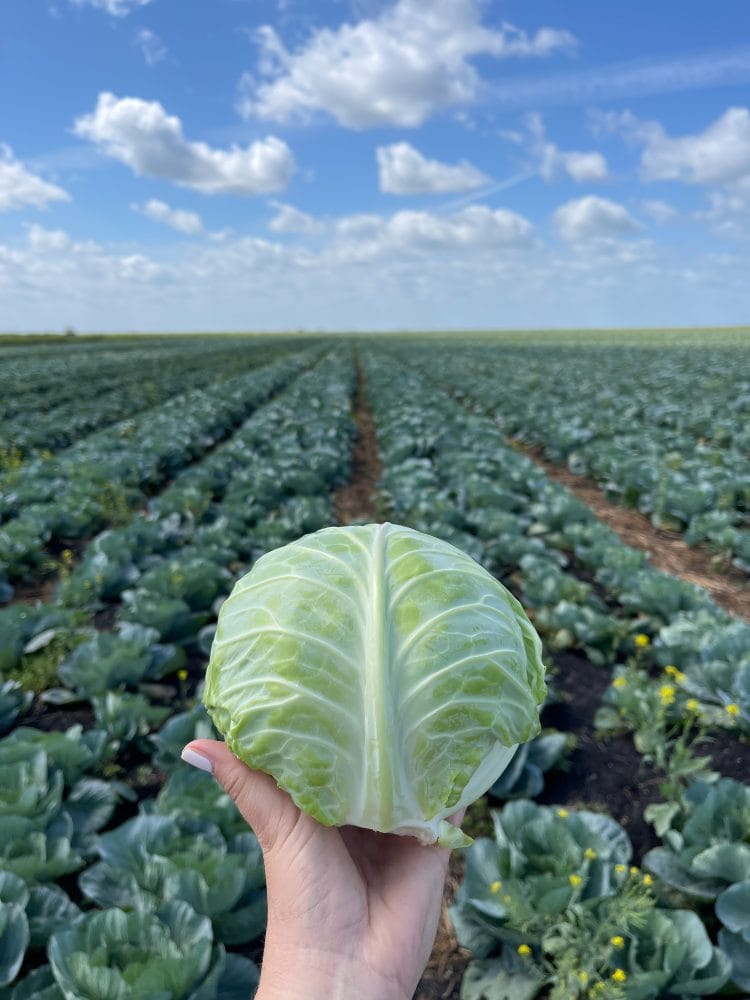
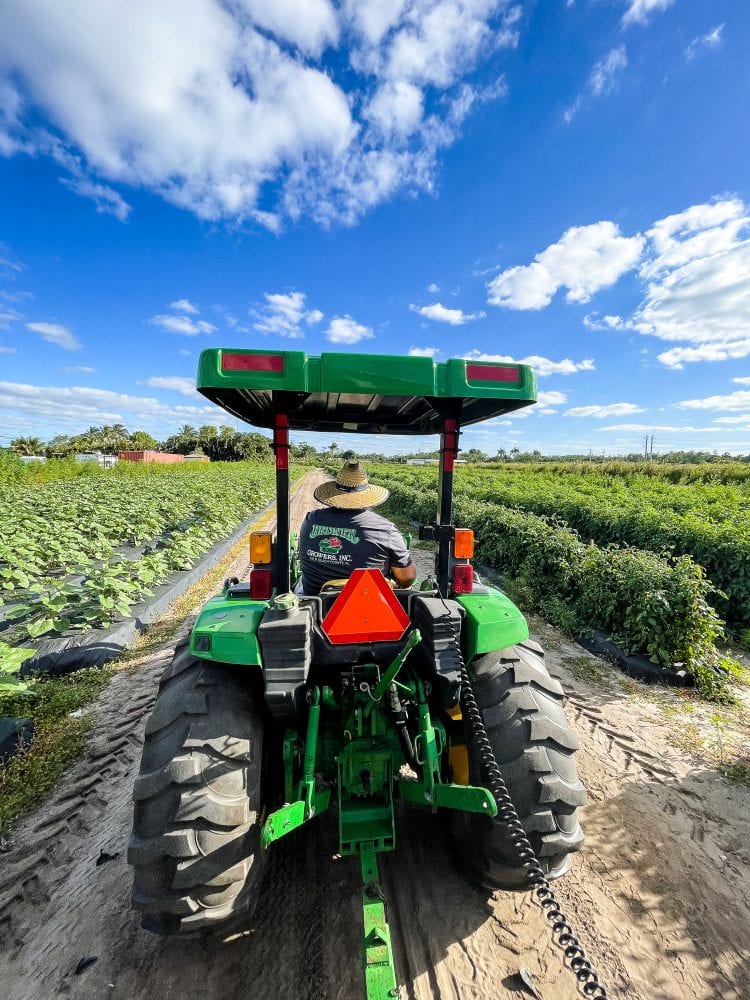
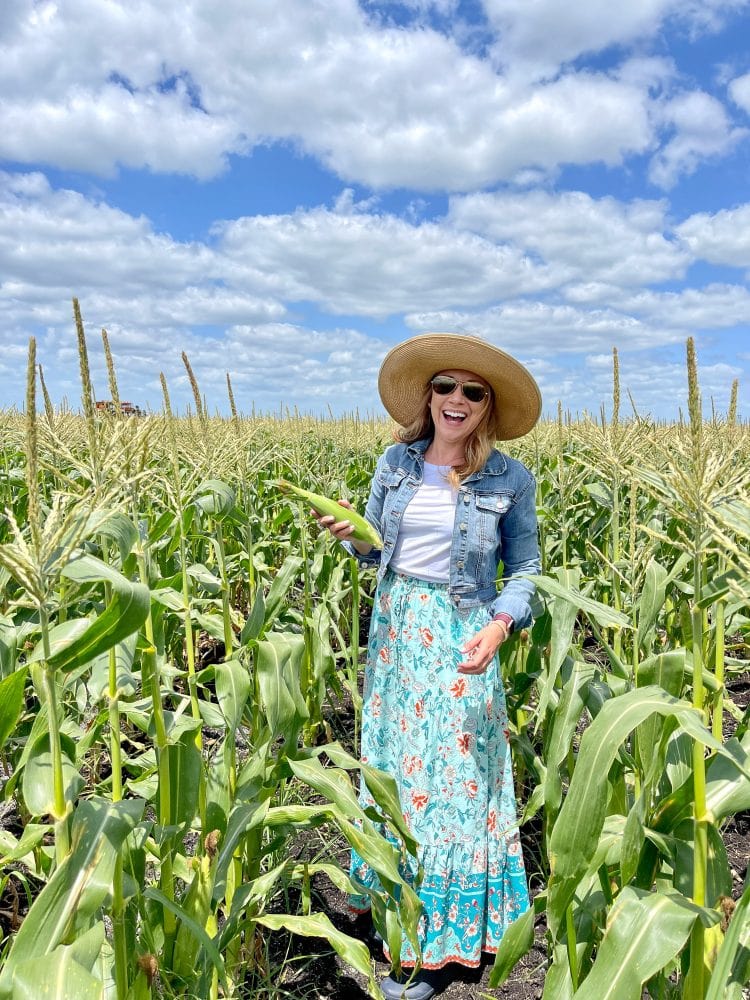
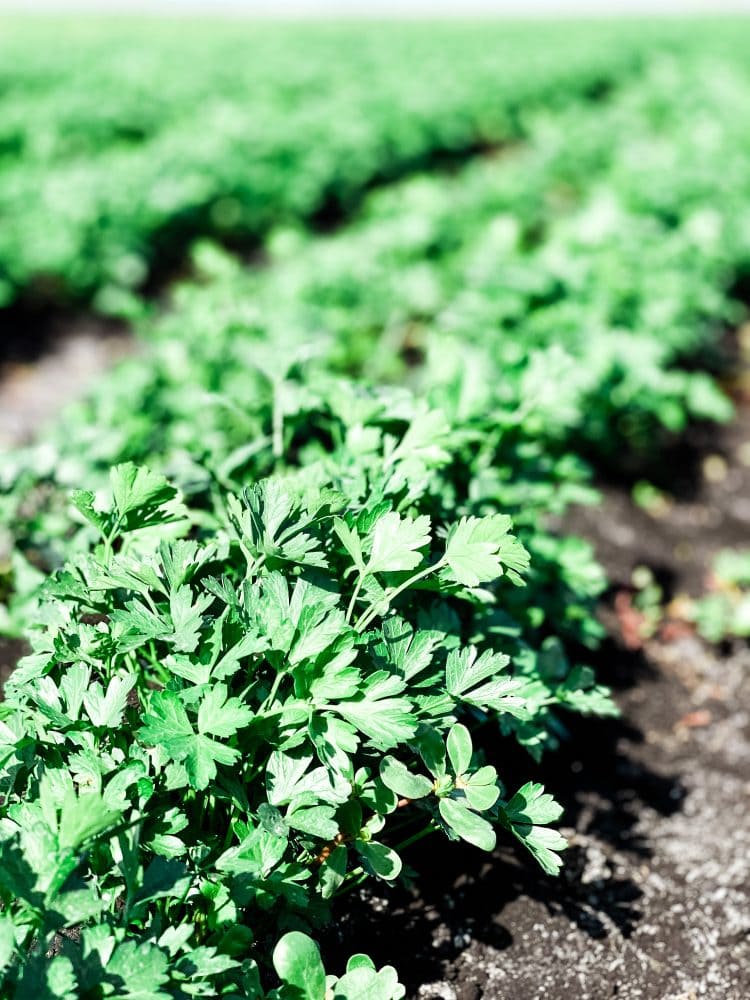
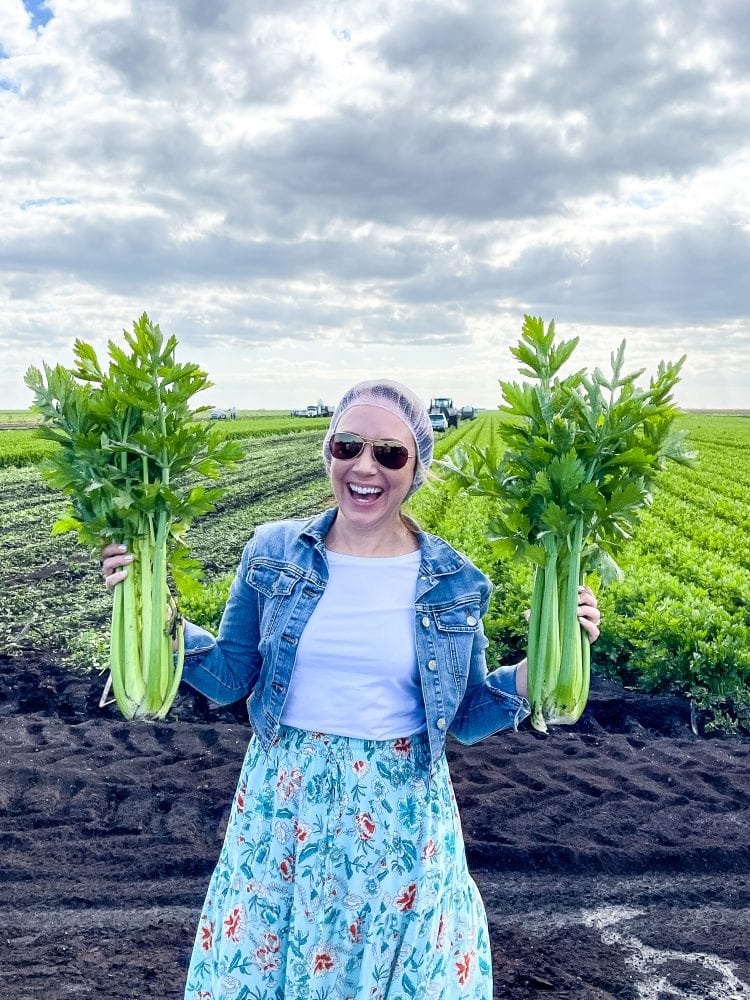
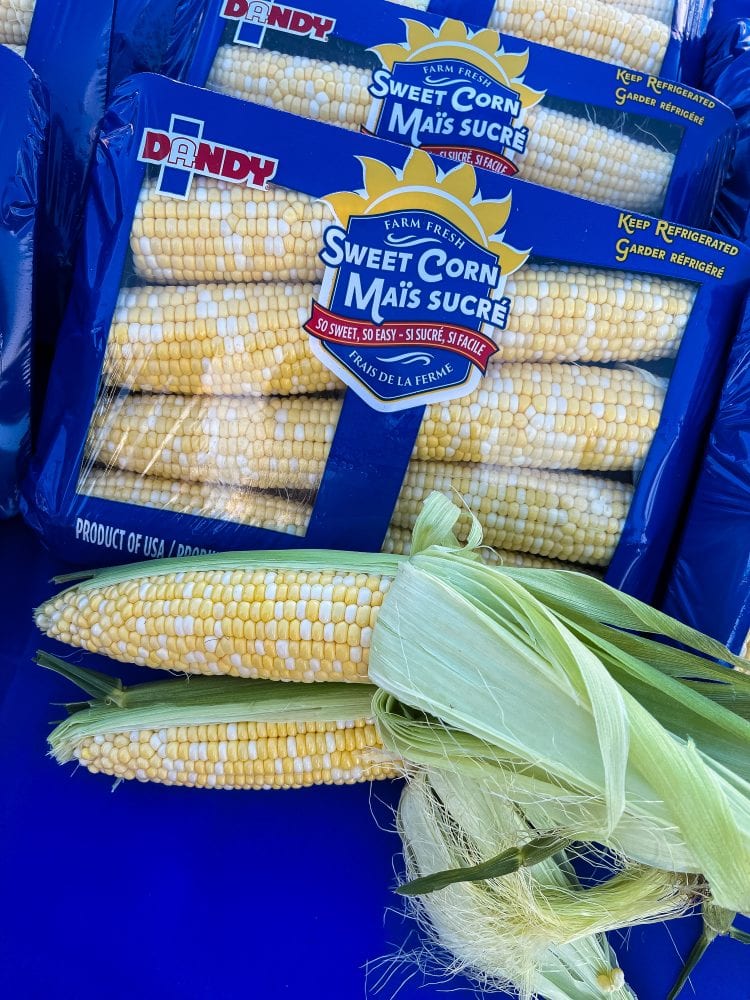
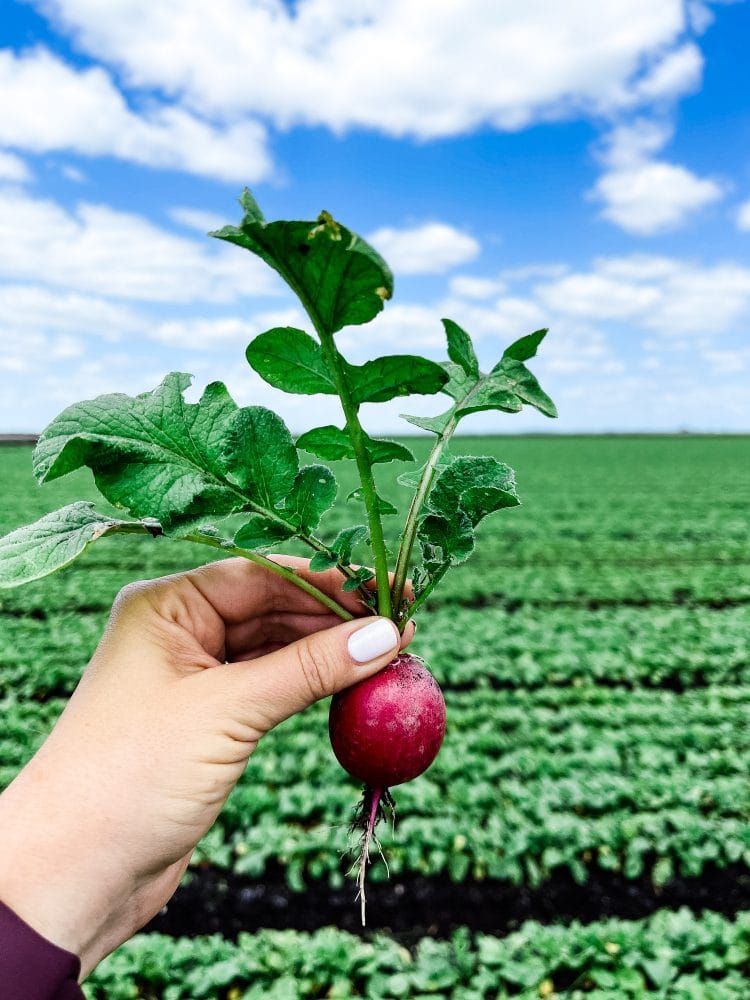
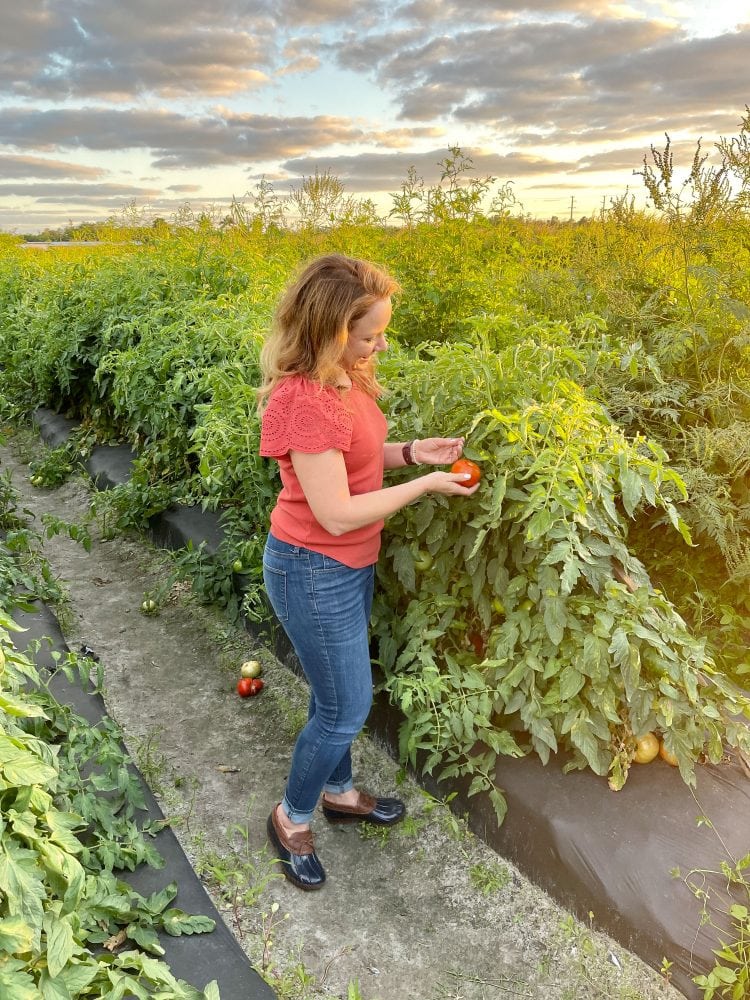
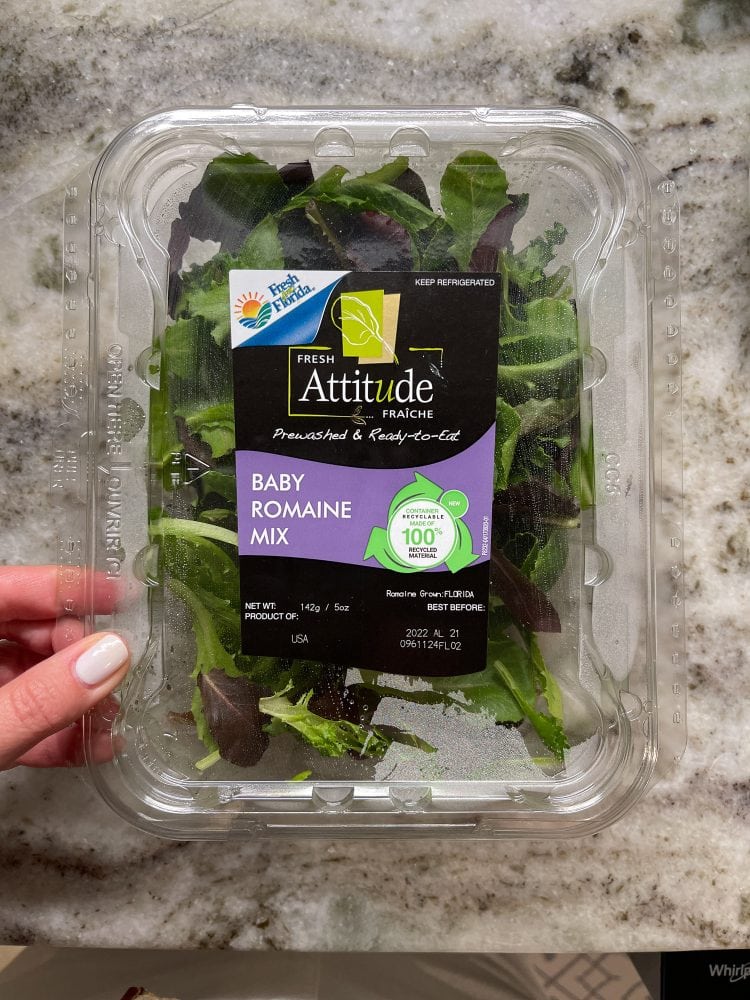
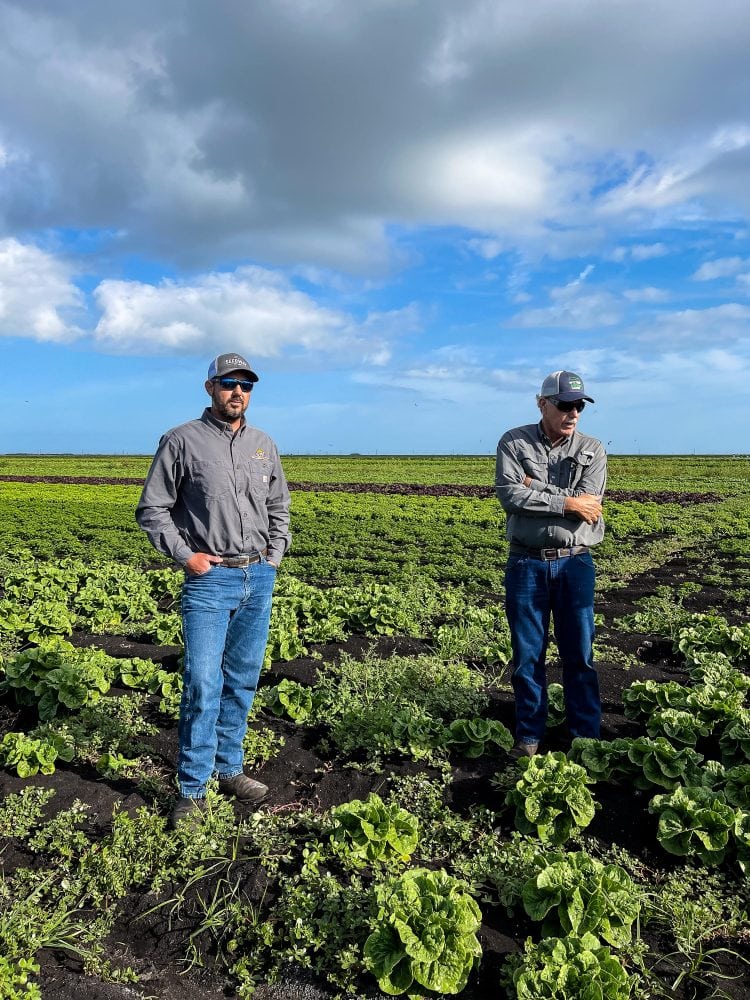
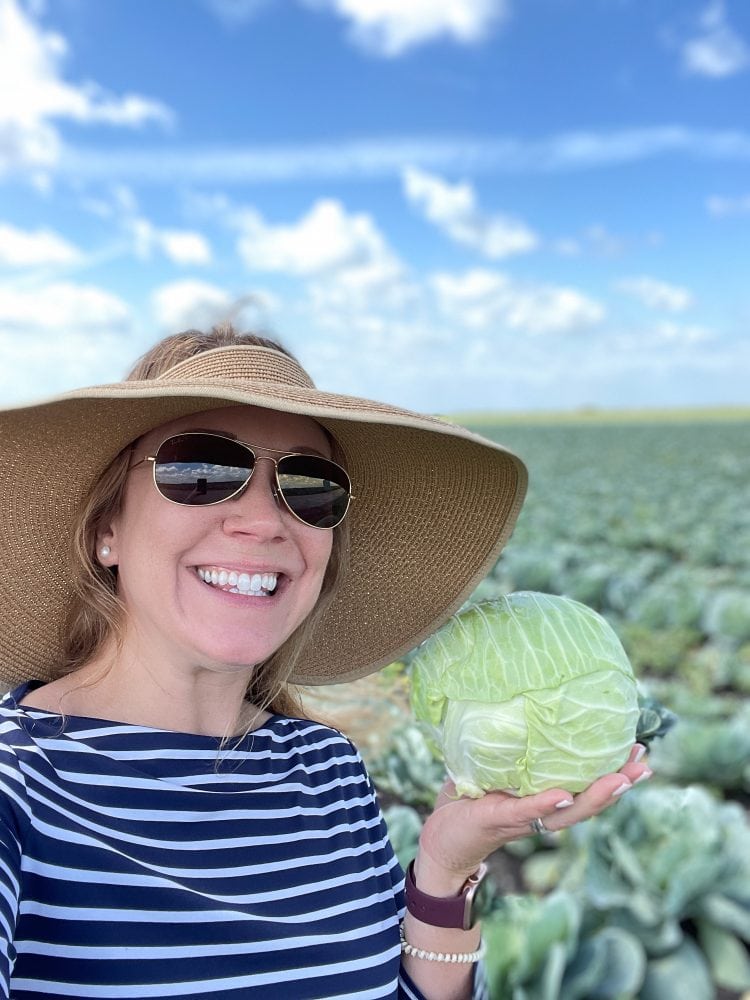
Leave a Reply